Unforgettable Meeting in Bonn
A whole week has passed since one of the most interesting events in spring of 2017 took place.
The annual assembly of the German section of ISHR dealing with the topic “conflicts in the Islamic World and their impacts on human rights” has ended.
During these two days, time flew by. Of course, I would like to cover all the contents and write about everything, but I think this would interest a only certain group of readers. Therefore, I will briefly describe only the most important events below.
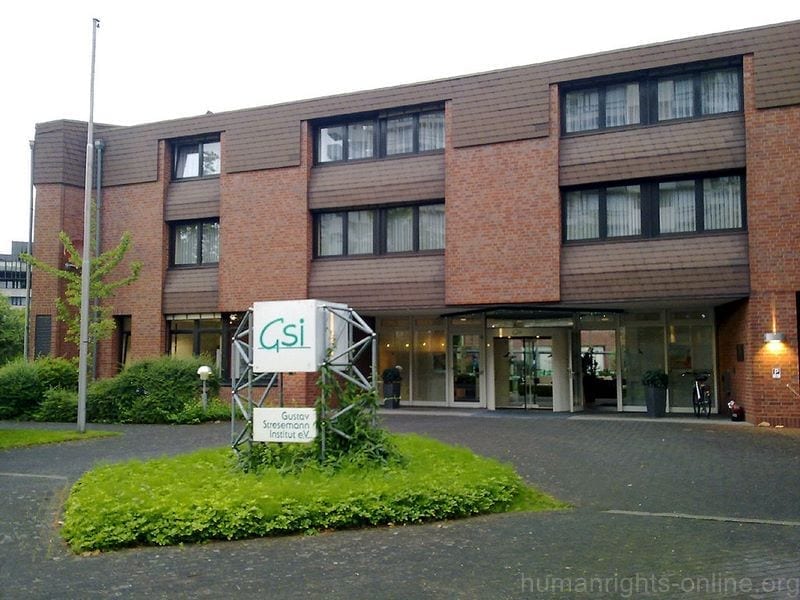
The meeting took place in the well-known Gustav-Stresemann-Institute, named after the winner of the Nobel Peace Prize and Chancellor of the Weimar Republic, Gustav Stresemann.
After our arrival, our small group, which consisted of human rights activists from the countries of the Eastern partnership and Russia who are involved in a project to promote journalism skills, went directly to the opening event of the conference.
It was interesting to learn, especially first-hand, the opinions of the conference speakers about a situation that not only influences the domestic and foreign politics of Germany, but also the whole European Union.
Primarily, I am referring to the speeches by Julia Klöckner, chairwoman of the parliamentary group CDU (Christian Democratic Union) in the Landtag and chairwoman of the CDU Rheinland-Pfalz and of Alexander Graf Lambsdorff, Vice-president of the European Parliament and deputy chairperson of the Land NRW of the FDP (Free Democratic Party) as well as Michael Gahler, chairman of the CDU/CSU group in the European Parliament.
The whole audience followed their speeches attentively. The interest of the listeners was tangible during the following discussion. I would also like to stress the emotional and inspiring speech by Mrs. Klöckner, who succeeded in not only including serious issues in her speech, but also amusing comments.
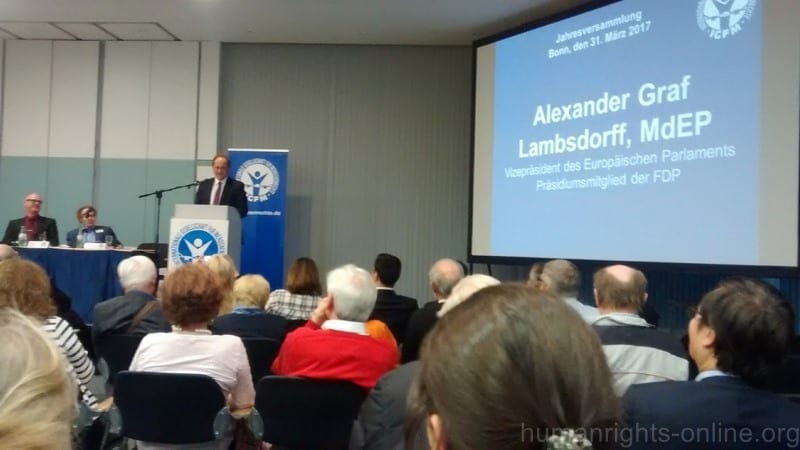
The Vice President of the European Parliament, Alexander Graf Lambsdorff, was just as expressive. He emphasized that the European Parliament seeks its information from different sources before it comes to a decision.
For a long time, I have been thinking that our website, humanrights-online.org, could possibly become one of these sources. After all, we have in fact succeeded in creating a platform that reflects the human rights situation in several countries of the Eastern partnership.
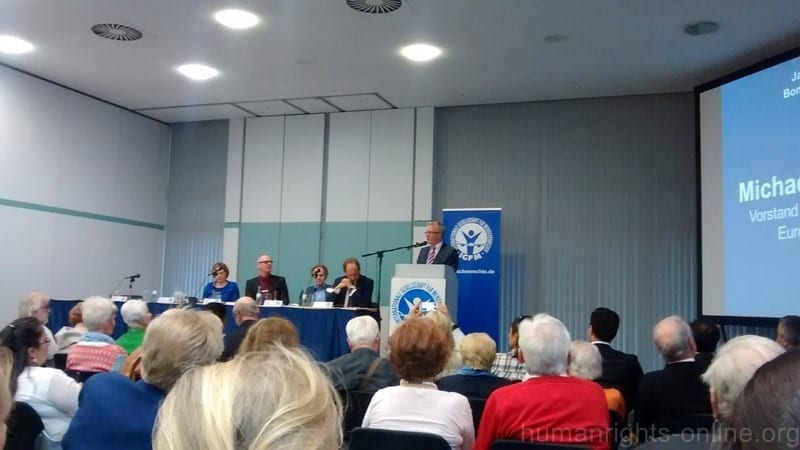
ISHR´s spokesman Martin Lessenthin moderated skilfully throughout both this conference and the press conference, which I attended the following day.
I remember the exciting questions of the representative of the Yezidi, a Kurdish ethnic group that was suppressed during the rule of Saddam Hussein and are persecuted in today´s Iraq.
Furthermore, interesting questions were asked by representatives of Albania and Pakistan.
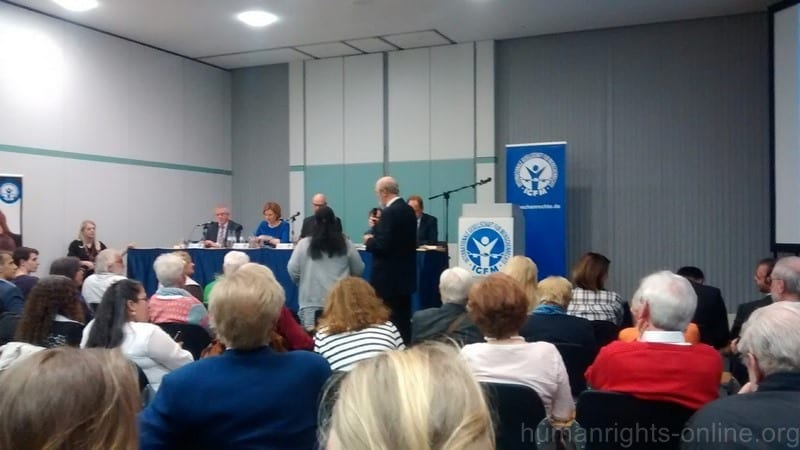
The President of the International Council of the ISHR, Prof. Dr. Thomas Schirrmacher, served as an interpreter. Although he plunged a little informally into the discussion, he brought a smile to the faces in the audience.
However, it seems to me that conferences on this level should use supportive tools to ensure translations for the participants in all corners. In fact, not all human rights activists present, coming together from different countries, could understand English, or above all German, very well.
The second day was filled with even more content.
In addition to our internal project meeting, where we evaluated the results achieved and discussed how we can arrange our webpage, I would like to mention two further meetings, which were very important in my opinion.
Fist, the encounter with the Turkish journalist Can Dündar.
And second, our meeting consisting of our group of human rights activists in Eastern Europe and the international president of ISHR, Professor Dr. Thomas Schirrmacher, the treasurer of the International Council, Karl Hafen and the general secretary, Dr. Marat Zakhidov.
Everything went well.
To be honest, to my shame I have to admit that I did not have any idea who this Can Dündar was.
Yes, a press conference with him was on the schedule; however, it was only after I read the first Wikipedia article about him that it became clear to me how courageous this man was.
And I consider the fact that we had the chance to meet him and speak with him as a big event in my life.
In addition to Can Dündar, Martin Lessenthin, Michael Gahler and Christian Mihr, President of Reporters without Borders in Germany, participated in the press conference.
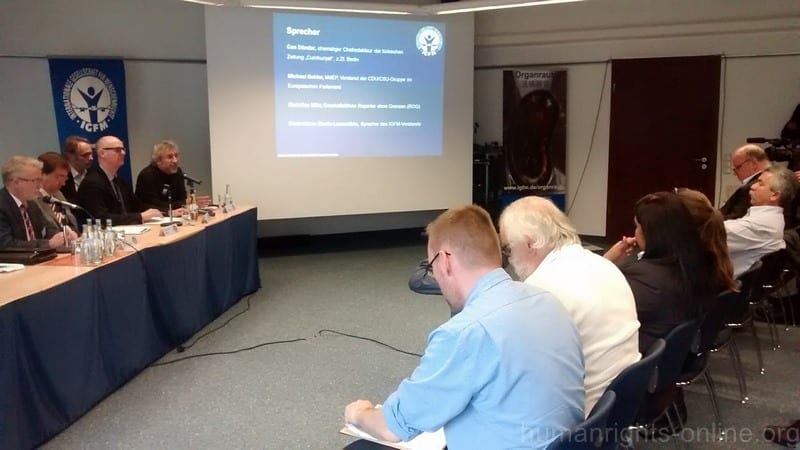
I asked Mr Dündar, if there was any danger that the situation in Turkey could influence the Syrian scenario. I asked Mr Gahler, if the situation in Turkey were to worsen, if the European Union, and especially Germany, would be willing to welcome several million refugees fleeing from the country.
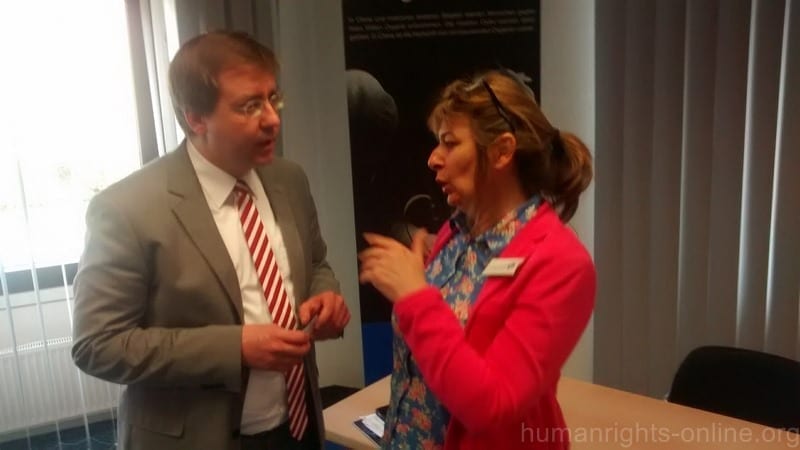
Dr. Carmen Krusch-Grün speaks with Christian Mihr, President of Reporters without Borders in Germany.
Of course, everyone was very happy that Mr. Dündar could make time for our small group.
He stated that he organized a group of journalists that will publish articles and information from reporters who can´t publish information using their own name, because they could be persecuted for this in their home countries.
Our project director, Dr. Carmen Krusch-Grün, remarked that our homepage, especially the planned international version of this homepage, can also be used for this purpose. Therefore, a further collaboration with Can Dündar and his colleagues would be very valuable.
Our final meeting that I would like to mention concerned our group of human rights activists from Eastern Europe and the international president of the International Council of the ISHR, Professor Thomas Schirrmacher, the Treasurer of the International Council, Karl Hafen, and the Secretary General of ISHR, Marat Zakhidov.
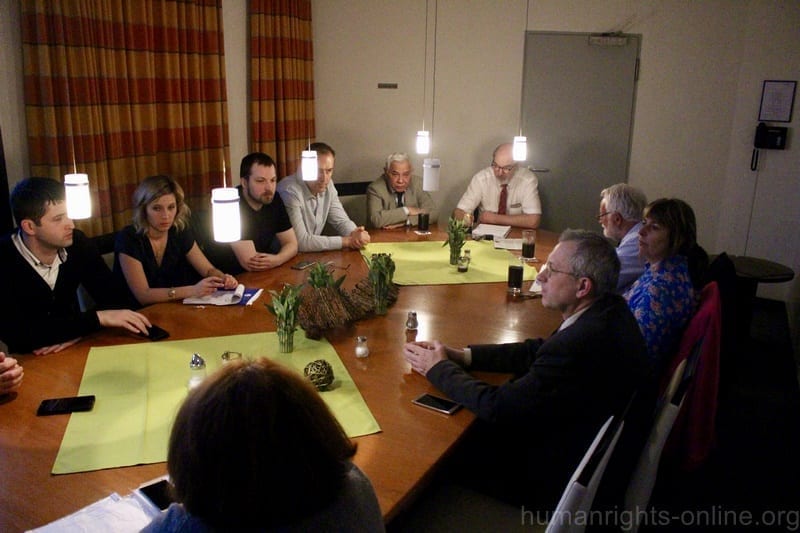
Carmen Krusch-Grün reported on our joint project and the prospects for its development. Subsequently, she handed over the discussion to the representatives of the participating ISHR sections, so that everyone could report on the situation in their country.
A genuine interest was noticeable from both Professor Schirrmacher and from Mr. Hafen. In particular, Karl Hafen asked additional questions after each presentation. In doing so, we noticed that he was familiar with the events in the area of Eastern Europe.
Thomas Schirrmacher explained that the situation in the countries we represent is far away from where we expected they would be, 25 years after the collapse of the Soviet Union. However, Mr. Schirrmacher was confident that due to our shared experiences and the collaboration between the countries, we are capable of further contributing to the protection of human rights.
Additionally, the Secretary General of the International Council of the ISHR, Dr. Zakhidov, emphasized how important it is to have information on our homepage about the problems of interreligious relations, as the interface of the Islamic and the Christian world is especially acute.
In general, it was very informative, useful and unforgettable. I think that we will remember this for a long time.
Finally, I would like to mention those who made this event possible.
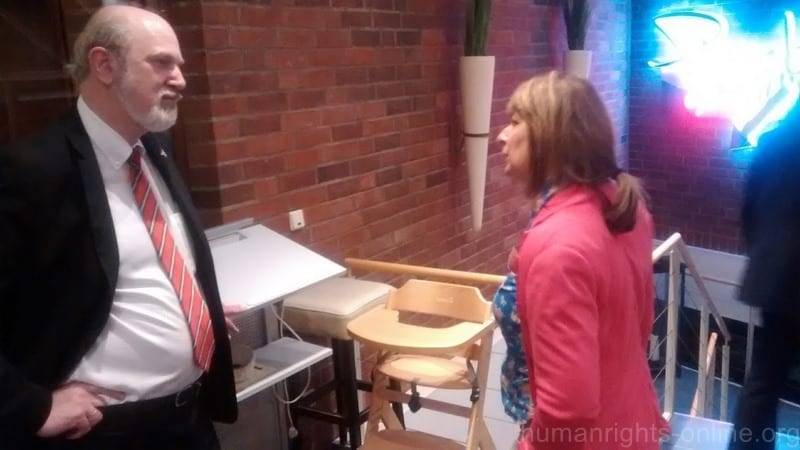
I would especially like to highlight our tireless project director, Dr. Carmen Krusch-Grün. It seems to me that she has enough energy for another dozen of these projects.
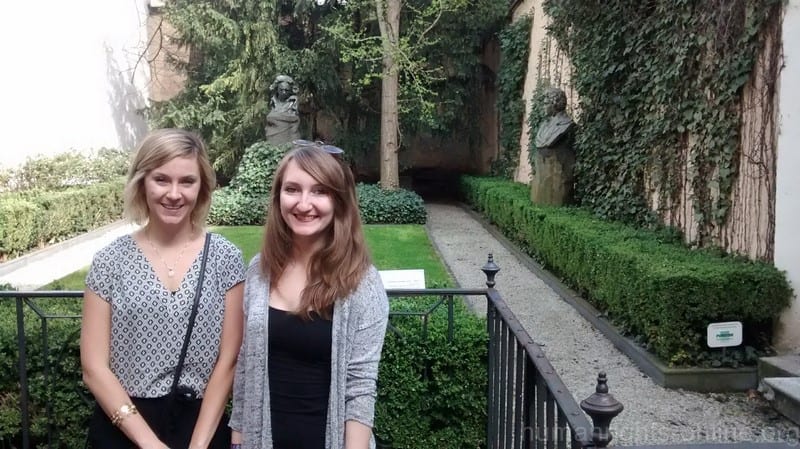
Additionally, I would like to mention friendly and charming Maya Robinson and Kristina Strachova. Their support during this trip was very important for all of us. I am also very thankful for their company in the centre of Bonn, in which we visited the “Beethoven Haus”, where Beethoven was born.
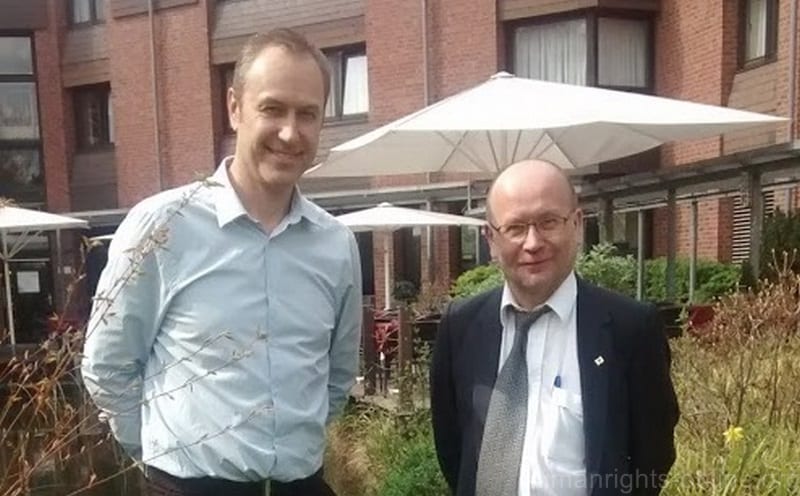
We cannot forget about our interpreter, the highly valued Dimitri Rahr. If the technical conditions for a simultaneous translation on the part of the organization had been better, especially during conferences, Mr Rahr´s work would have been much more effective.
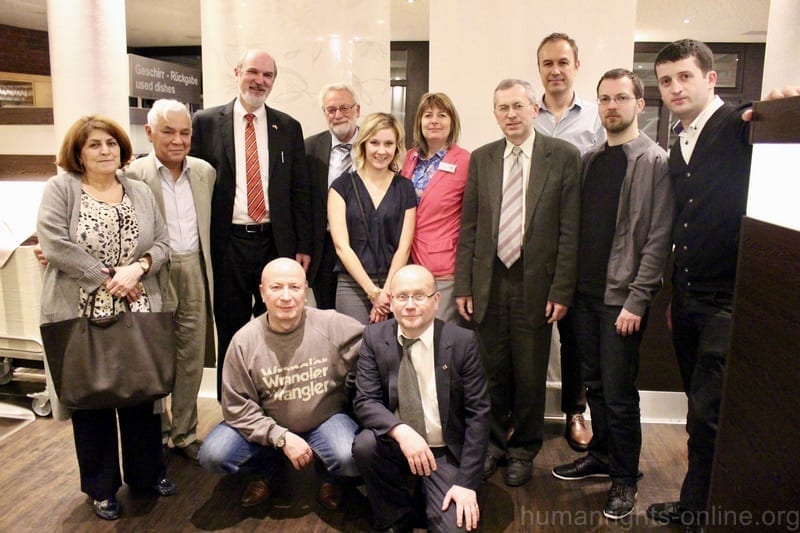
Now we will all continue with our projects in the respective sections, until we will see each other again during the next meeting in Kiev.



![SAM_101_0405[1]](https://c1.staticflickr.com/3/2899/33811723562_30108fdf78_z.jpg)

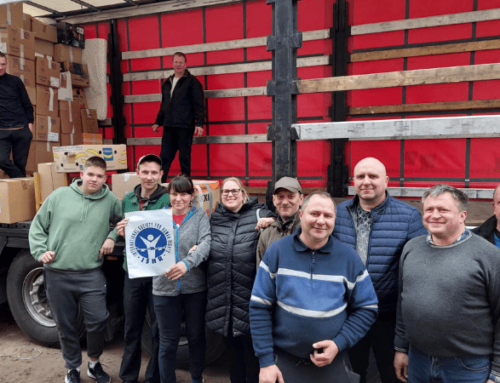
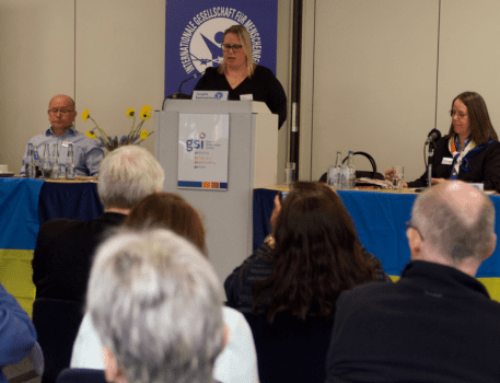
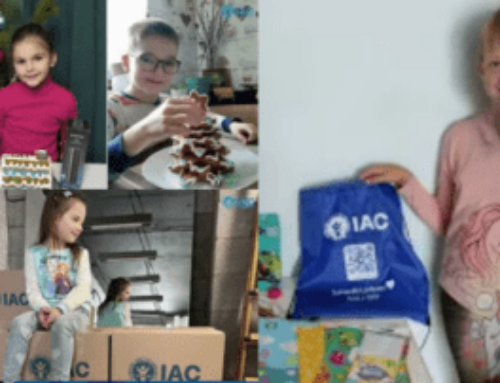
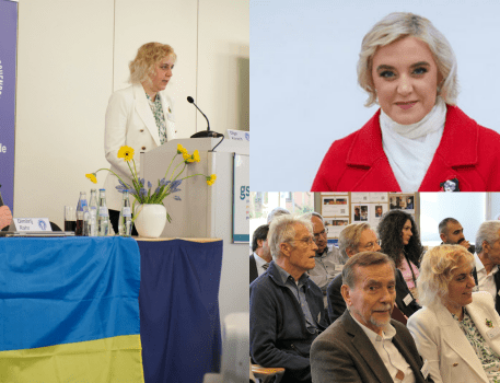
Leave A Comment